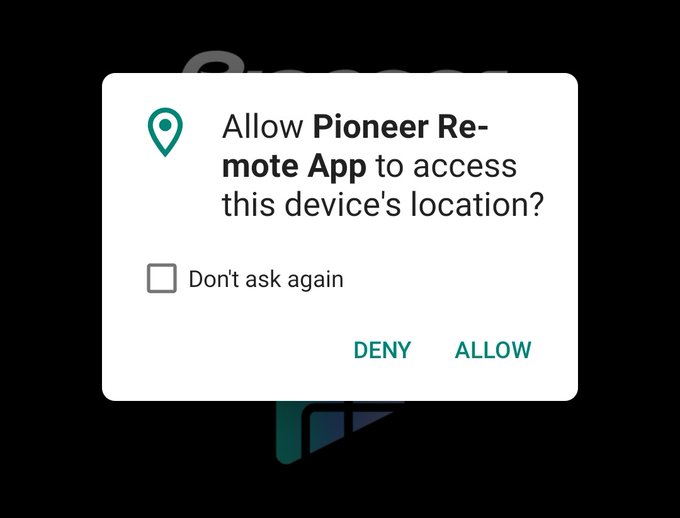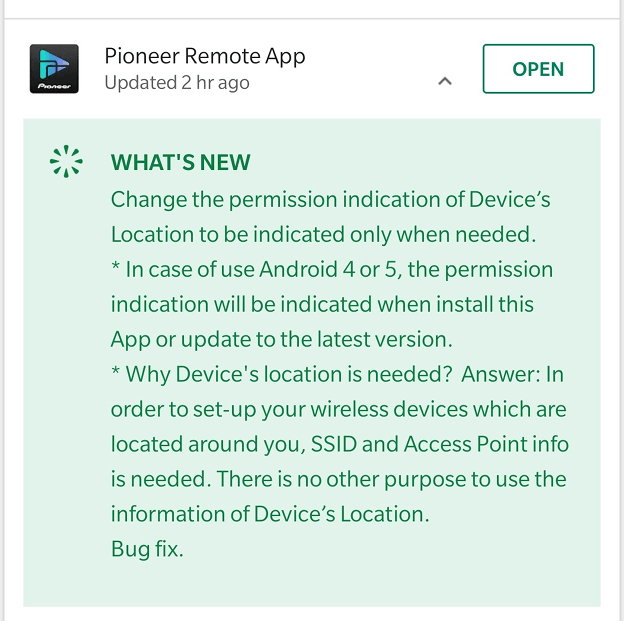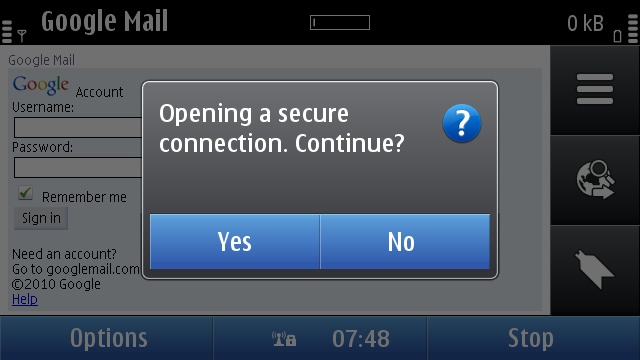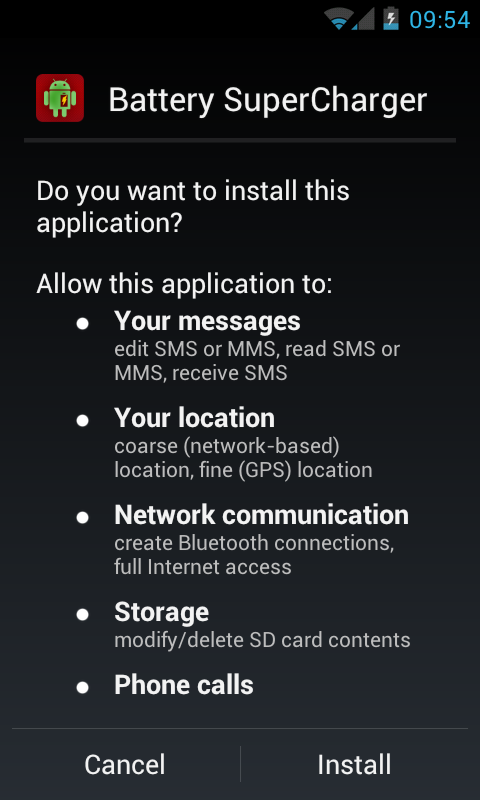Why does the remote control application need to know my location?
- Transfer
Here is an interesting pattern of unfriendly application behavior that could be easily avoided if programmers and businessmen reasoned like ordinary people.
I have a Pioneer / Onkyo sound system. This is a good technique that comes with a (not too crappy) Android remote control app.
Once the application was updated and showed a standard change log with “bug fixes and improvements”, but when it opened it popped up:

Lord, why would the remote control know my location? I decided that this was due to some kind of marketing nonsense, so I refused. Then the application refused to work.

Leave aside the malicious grammar violations in the pop-up window. We have a situation: the program used to work fine, but now it’s broken, because the developer didn’t think that someone would dare refuse to request confidential data.
Like several other users, I sent a complaint. A few weeks later they published an update:

The new application works even if you prohibit tracking. Happened!
The first mistake was made by the developers of Pioneer / Onkyo. They were supposed to show a message like “Hey, we would like to know your location, so we can ...” and then let the user make an informed choice whether to provide information or not.
If the user refuses, provide some other way to perform the operation manually.
Wise Google has linked “location” to features like BLE scanning and WiFi scanning, because theoretically they can be used to calculate location. That is, if you are near the access point X, then you can assume your location.
Well done, of course. But is it possible to ask more understandable questions, for example: “Do you want to enable WiFi scanning? It may reveal your location. ” This is probably not the best formulation, but the current situation really disorientates and upsets users.
These are common complaints about Android. And in the near future the situation is unlikely to be corrected.
In the days of Nokia, applications requested permission suddenly . It was joked that a web browser would ask for permission to connect to the network, and then ask if you really want to connect to a secure website.
Think I'm kidding? This is a common situation on Symbian:

Android and Apple were supposed to free us from this hard work. With thorough directory moderation and double-checked applications, there is no need to bother the user with permission requests.
Then it happened:

The developers abused their trust and began to push unnecessary permissions into their programs to profit from users.
People do not want to think about it. Application directories do not want to control applications. Developers do not want to create problems for users. Regulators do not want data to be transmitted without consent. Users say they want to manage permissions, but they don’t really understand the consequences.
What a madhouse! Maybe look for AA batteries for a conventional remote ...?
I have a Pioneer / Onkyo sound system. This is a good technique that comes with a (not too crappy) Android remote control app.
Once the application was updated and showed a standard change log with “bug fixes and improvements”, but when it opened it popped up:

Lord, why would the remote control know my location? I decided that this was due to some kind of marketing nonsense, so I refused. Then the application refused to work.

Leave aside the malicious grammar violations in the pop-up window. We have a situation: the program used to work fine, but now it’s broken, because the developer didn’t think that someone would dare refuse to request confidential data.
Like several other users, I sent a complaint. A few weeks later they published an update:
WHAT'S NEW. Indication of a change in permission to indicate the location of the device only if necessary.
* When using Android 4 or 5, the indication occurs when installing the application or updating to the latest version.
* Why do I need a device location? Answer: To set up wireless devices around you need SSID data and access points. The location information of the device is not used for any other purpose.

The new application works even if you prohibit tracking. Happened!
Reason number 1
The first mistake was made by the developers of Pioneer / Onkyo. They were supposed to show a message like “Hey, we would like to know your location, so we can ...” and then let the user make an informed choice whether to provide information or not.
If the user refuses, provide some other way to perform the operation manually.
Reason number 2
Wise Google has linked “location” to features like BLE scanning and WiFi scanning, because theoretically they can be used to calculate location. That is, if you are near the access point X, then you can assume your location.
Well done, of course. But is it possible to ask more understandable questions, for example: “Do you want to enable WiFi scanning? It may reveal your location. ” This is probably not the best formulation, but the current situation really disorientates and upsets users.
These are common complaints about Android. And in the near future the situation is unlikely to be corrected.
Permission to speak fluently
In the days of Nokia, applications requested permission suddenly . It was joked that a web browser would ask for permission to connect to the network, and then ask if you really want to connect to a secure website.
Think I'm kidding? This is a common situation on Symbian:

Android and Apple were supposed to free us from this hard work. With thorough directory moderation and double-checked applications, there is no need to bother the user with permission requests.
Then it happened:

The developers abused their trust and began to push unnecessary permissions into their programs to profit from users.
People do not want to think about it. Application directories do not want to control applications. Developers do not want to create problems for users. Regulators do not want data to be transmitted without consent. Users say they want to manage permissions, but they don’t really understand the consequences.
What a madhouse! Maybe look for AA batteries for a conventional remote ...?
